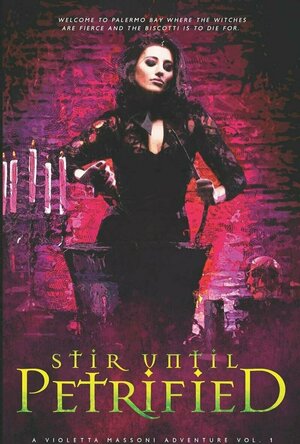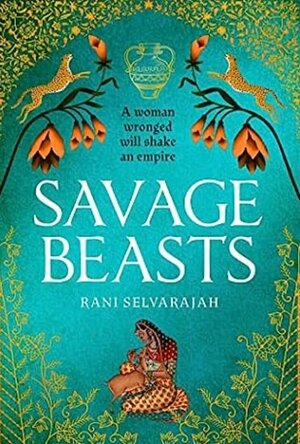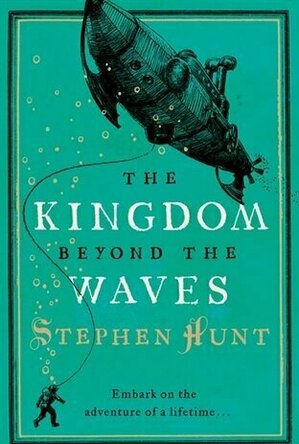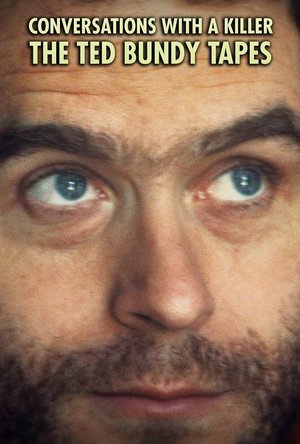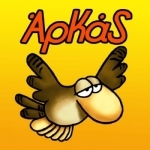Lyndsey Gollogly (2893 KP) rated Stir Until Petrified (Violetta Massoni #1) in Books
Sep 12, 2020
Kindle
Stir until petrified ( A Violetta Massoni book 1)
By Theda Vallee
Welcome to beautiful Palermo Bay, where the witches are fierce
...and the biscotti is to die for.
Violetta "Etta" Massoni is an Italian witch living and working with her overbearing family in the sleepy seaside town of Palermo Bay. Healing from tragedy, she wants nothing to do with the magic she was born with.
Etta soon finds herself forced into the world of magic that she had resisted for so long. The peaceful calm of her community is shattered by a string of attacks that leaves fifteen people trapped in their dreams. An ominous magic task force is sent to investigate, with Etta as their number one suspect.
Her family has never been able to mind their own business, and they aren’t about to start now! Dragging her grandmother from crime scenes will be the least of her worries. Join Etta and the whole Massoni girl gang on a perilous, hilarious adventure filled with magic, myth, and minestrone!
After waiting for so long I finally got round to reading this! Oh my god! I don’t remember the last time I gave a 5* and enjoyed a book so much! I laughed I adore Etta and her family! It was packed with wit and so well written! The last character I loved this much was Charley Davidson from Darynda Jones’s books! I also learnt what a Benandanti was and that in this book I’d be expecting a knock at the door on his 10th birthday. Also my favourite quote which had me laughing out loud!
“Where am I supposed to sit?” I eyed the motorcycle’s seat, trying to calculate how much butt room there was. He handed me a helmet, pointing to the back of the bike. “You sit behind me. It’s called the bitch seat.” “Does that make where you’re sitting the prick perch?” I asked, climbing on behind him. As I’d feared, sitting made my shorts move so far up my nether region, I was positive we’d need a search and rescue team to get them out later.
I really can’t wait to read the next book!

Battery Doc - Professional Care and Information
Productivity and Utilities
App
Providing useful and relevant data revolving around battery health and general device information on...
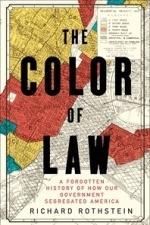
The Color of Law
Book
In this groundbreaking history of the modern American metropolis, Richard Rothstein, a leading...
History Politics
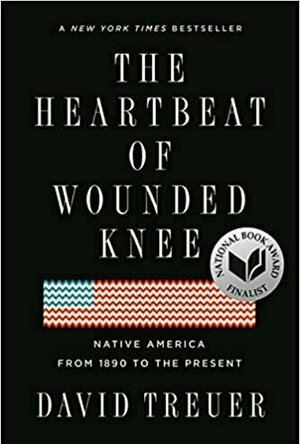
The Heartbeat of Wounded Knee: Native America from 1890 to the Present
Book
An informed, moving and kaleidoscopic portrait... Treuer's powerful book suggests the need for...
ClareR (6059 KP) rated Savage Beasts in Books
Jul 4, 2023
I thought it was really clever how the Greek myth was woven into Meena’s story, and showed the impact of colonialism. Great Britain doesn’t come out of this well. James’ uncle, Sir Peter Chilcott, is a powerful man in the East India Company. He’s cold, unforgiving, and sees Meena, Indians, Bengali’s, and anyone from anywhere foreign, as below him and little better than an animal.
It made for really uncomfortable reading, and made me so angry!
Meena comes across as being so young but desperate to be older. She’s determined to make a good life for herself and her child - despite how difficult James and his reprehensible family make it for her.
Honestly, by the end I firmly believed they deserved whatever was coming their way!
I listened to this on audiobook, kindly sent to me via NetGalley by HarperCollins UK Audio. The narrator, Shazia Nicholls, really was outstanding. It always amazes me how a good narrator can make all the characters sound so different - especially in this case, the men. Sir Peter came across as a sneering, superior, calculating monster, and in contrast, Meena was both young and wise - and it felt as though she was really there, speaking for herself. Shazia read with such emotion that it became entirely believable. This could well have been an historical memoir as much as a piece of fiction.
Yes, this is described as a Greek retelling, but it has been made into something all of its own. If you know the story of Medea, then you’ll see where in particular it is borrowing from that story - but this is a great story in its own right. It’s powerful, feminist and it’s about colonialism. It’s a story about family, trust and the devastation of betrayal.
Highly recommended!
Phil Leader (619 KP) rated The Kingdom Beyond the Waves in Books
Nov 18, 2019
Meanwhile, why is someone graverobbing obsolete steamman corpses from cemetaries? And why has Furnace-breath Nick - scourge of Quatershift - been asked to break a prisoner free?
For those unfamiliar with Hunt's incredibly imaginative world - revealed in this book to likely be a far future version of our own which somehow mirrors certain aspects such as Victorian England and the French Revolution - would soon be at home in this book, particularly as half of the book involves a trip up a native-infested jungle river worthy of Conrad. Meanwhile the trail is being followed from the other end and the smoggy streets of Middlesteel in the country of Jackals by Furnace-breath Nick's not so mild mannered alter ego, Cornelius Fortune.
The way the story unfolds is very reminiscent of Saturday morning serials that used to be popular when not everyone had a television. There are a series of episodes where our heroes are put into peril and yet somehow (mostly) break free. The difference is in the mostly. Hunt is not afraid of killing off a character and that keeps the reader on the edge of their seat and turning the pages to see if that really was the end or there is a miraculous escape on the cards.
The inventiveness Hunt showed in The Court of the Air is very much still evident with a fiendish plot and fantastic ideas zinging off the page together with very clever dialog. Once again this is a book to read carefully and not to skim, it will be so much more rewarding.
All in all this is a stronger book than the first and the characters in it are terrific, heroes and villains alike. There are still Deus Ex Machina escapes here and there but they are on the whole consistent with the world of Jackals.
I would very much recommend this to anyone who likes their science fiction broad and heading to steam punk rather than space opera (although it's not really steam punk) and their adventure old-school swashbuckling. Terrific work.
Kirk Bage (1775 KP) rated Conversations With A Killer: The Ted Bundy Tapes in TV
Mar 3, 2020
With the benefit of at least some hindsight, we can see in this case the epitome of such terms as “serial killer” and “sociopath”. Looking at it in pure terms of an idea worthy of dramatic exploration, then this is it! And, interestingly, to this date, besides the Zac Efron misfire, it is a story beyond worthy of correct telling, the basis of which should be the real footage. Because nothing is more bizarre than the real man and what he not only attempted to do, but actually did.
Take the basic idea that one individual is capable of murdering 30 plus women and girls over a period of two decades… then accept that he systematically went back to the corpses and committed acts of necropholia and decapitation without ever skipping a beat in what he perceived as his true persona as a competent lawyer in his own right, and you have the stuff of true nightmare. Add to that the fact that he escaped custody twice, and defended himself in court to such a charming extent that the judge himself admitted an affinity with him, and you have the recipe for something that transcends fact and becomes myth. Don’t believe me? Watch for yourself.
Do I agree with these cases being shown as entertainment? No, I don’t. Essentially. Because they are rarely told from the victim’s point of view. We have a fascination with an unsolved mystery and grim death that is undeniably curious. The cult of personality pervades, and we should be wary of why we get involved with this stuff. As addictive TV it is undeniably going to continue. Please be careful of the line between understanding and entertainment. God forbid I would give these shows a rating, as if it were a thing worthy of encouragement. It is the most undeniable yet horrific side effect of our media growth imaginable. Watch at your peril. But watch discerningly with interest.
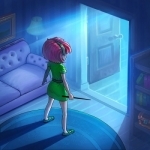
Ghost Town: Mystery Match Game
Games and Stickers
App
Epic journey leads you in abandoned township to help the cute local characters. Exciting plot about...
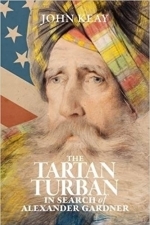
The Tartan Turban: In Search of Alexander Gardner
Book
'Among the many gripping tales of travel and exploration the tale of Alexander Gardner is surely one...
history
